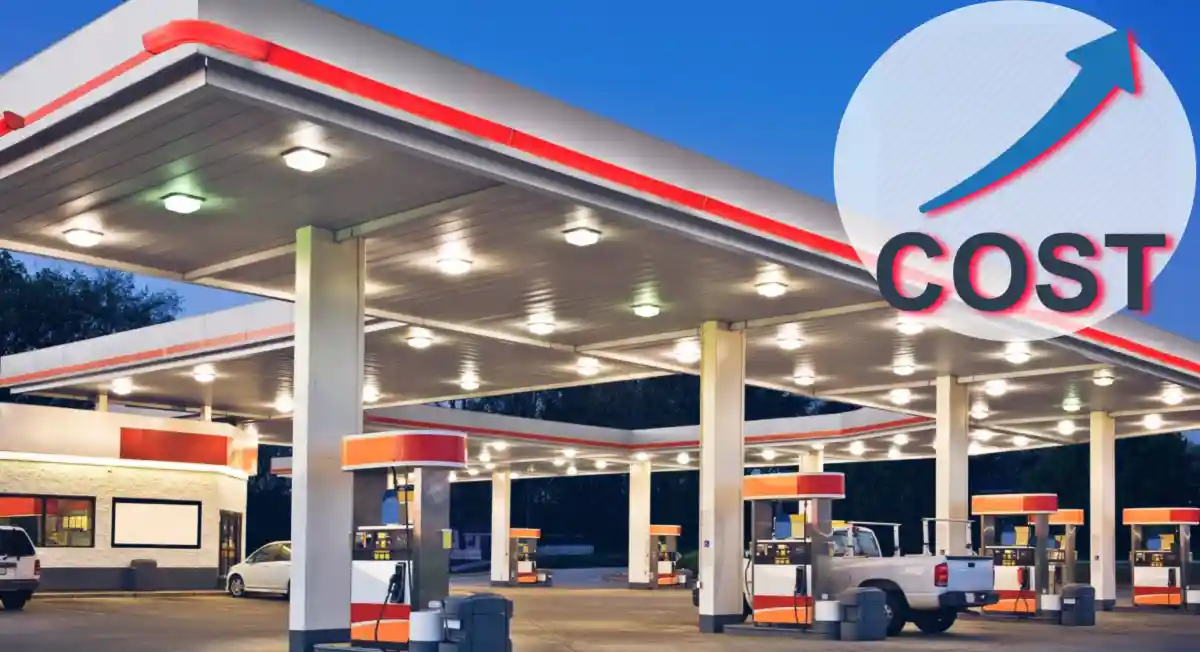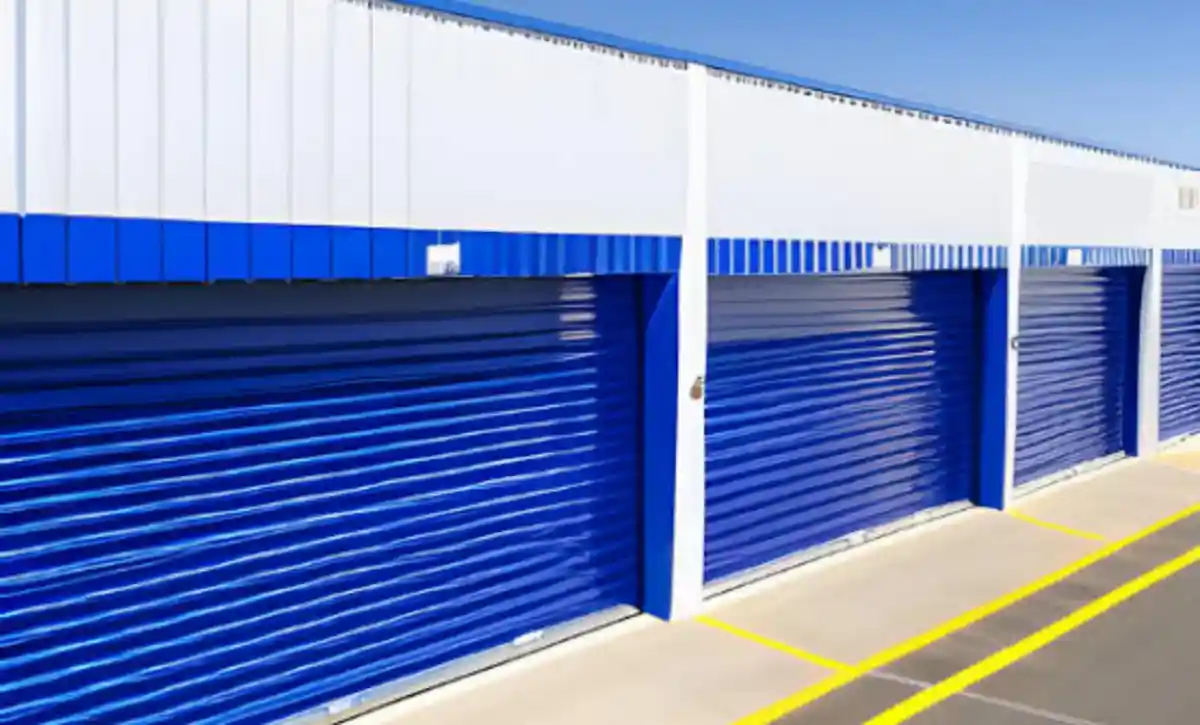Considering an automated car wash business? On a very good day, it is a massive business, speaking of profit. But how profitable is automated car wash? If you find yourself on the right street corner with the right traffic, you should be looking at $20k+ a day – this business prints money. At $20k a day, for example, you should be generating $240k per year.
You need a better understanding of things, so we have made sure this post covers a wide aspect of the business – profit-wise.
How Profitable is Automated Car Wash?
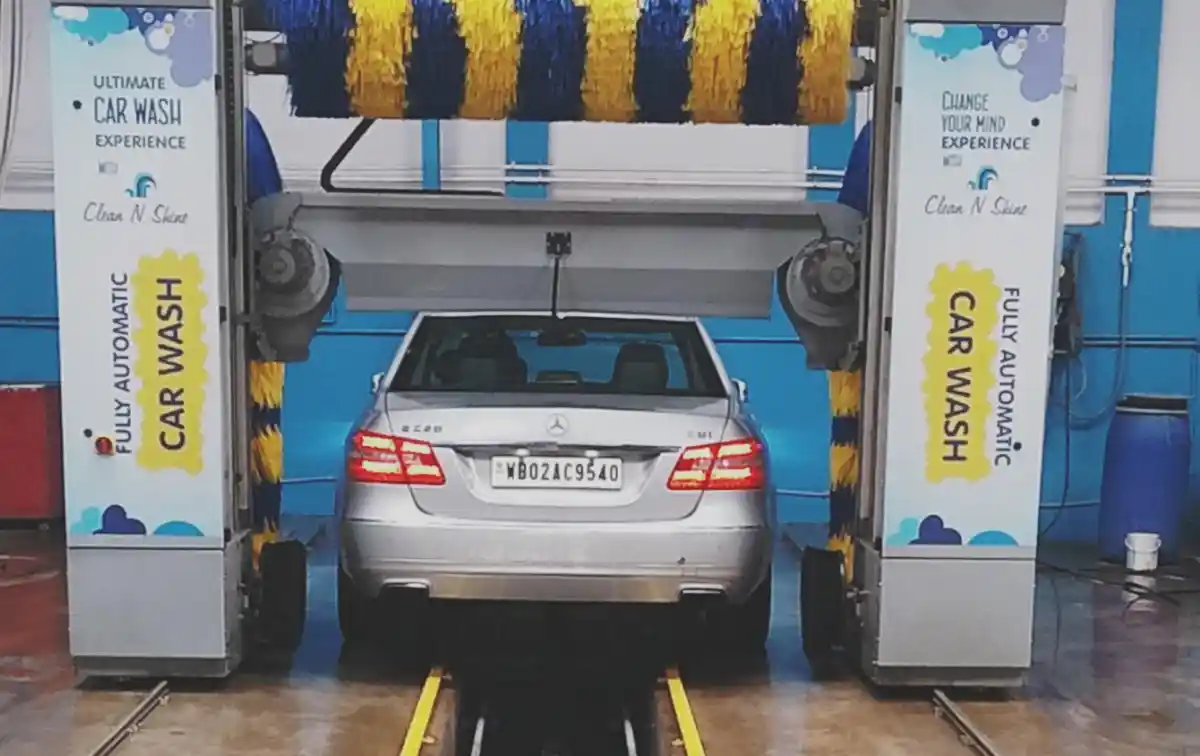
As with any business, the profitability of an automated car wash depends on the location, operating costs, local demand, and competition within the area. Let’s consider some hypothetical data and trends:
Table 1: Automated Car Wash Service Pricing
| Service | Price |
|---|---|
| Basic Wash | $5 |
| Deluxe Wash | $10 |
| Premium Wash | $15 |
Let’s assume your car wash operates for 12 hours a day, with the ability to service one car every 5 minutes. That’s a potential 144 cars a day.
Table 2: Daily Revenue (Estimated)
| Service | Cars per day (30% of total) | Revenue per day |
|---|---|---|
| Basic Wash | 43 | $215 |
| Deluxe Wash | 43 | $430 |
| Premium Wash | 58 | $870 |
| Total | 144 | $1515 |
Therefore, the estimated monthly revenue (if you run for 30 days) would be $45,450 – that’s even more than we estimated at the start of this article.
Table 3: Estimated Monthly Operational Costs
| Operating Costs | Percentage of revenue | Cost |
|---|---|---|
| Utilities | 5% | $2,272.5 |
| Loan repayments | 10% | $4,545 |
| Insurance | 5% | $2,272.5 |
| Equipment maintenance | 5% | $2,272.5 |
| Supplies | 10% | $4,545 |
| Staffing (optional) | 5% | $2,272.5 |
| Total | 40% | $18,180 |
From this estimation, your monthly net profit would be approximately $27,270 ($45,450 – $18,180).
The printed figures here do not include the substantial upfront costs of land acquisition, construction, and equipment purchases though.
Remember, the trends, data, and tables provided here are hypothetical and for illustrative purposes. Actual results depend on your local market conditions, pricing strategy (that customers are known to pay), operational efficiency, etc.
What is the Profit Margin for an Automated Car Wash?
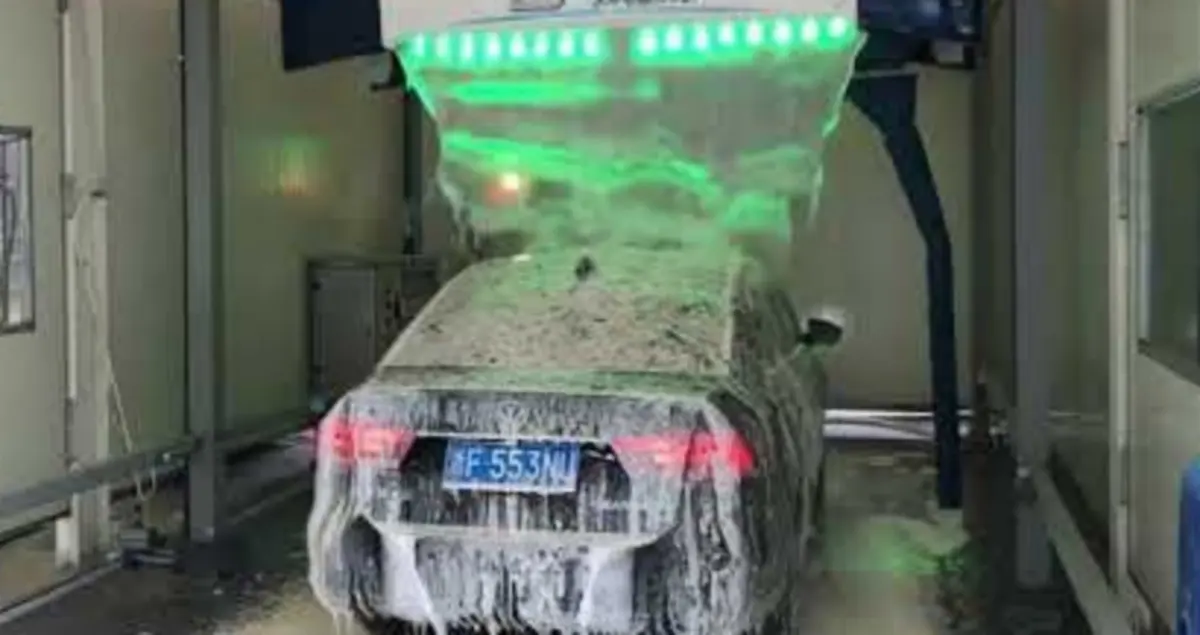
The determinants of the profit margin of an automated car wash business begin with geographical location. Others include local competition, operational efficiency, marketing effectiveness, and weather patterns. Meanwhile, the general industry consensus estimated profit margins for automated car washes to typically fall in the range of 20% to 35%.
Let’s illustrate with an example, considering an automated car wash that generates $30,000 in monthly revenue. Operational expenses, which encompass utilities, supplies, loan repayments, insurance, and potential staffing costs, might be approximately 60% to 70% of the revenue. This means that monthly operational costs could range from $18,000 to $21,000.
Table 4: Profit Margin Calculation for a Hypothetical Automated Car Wash
| Description | Amount ($) |
|---|---|
| Monthly Revenue | 30,000 |
| Operational Costs | 18,000 – 21,000 |
| Monthly Profit | 9,000 – 12,000 |
| Profit Margin | 30% – 40% |
Therefore, the monthly profit would range from $9,000 to $12,000. By dividing the monthly profit by the monthly revenue and multiplying by 100, we find that the profit margin would be in the range of 30% to 40%.
This is a healthy profit margin for many businesses. However, these are rough estimates and actual profit margins can vary.
Just so we don’t leave them out of this list, remember that weather patterns and economic conditions play a huge role in the demand for car wash services.
Is an Automatic Car Wash a Good Investment?
Given proper planning, management, and the right location, an automated car wash is a good investment. The industry has been on a growth trend, with the global car wash services market size anticipated to reach USD 38.61 billion by 2030, registering a CAGR of 3.1% over the forecast period – Businesswire.
Here’s why an automatic car wash can be an attractive investment:
- Increased Car Ownership. The number of car owners worldwide continues to increase. There are 1.47 billion cars in the world as of 2023. Most are in Asia, followed by Europe and North America, indicating a large potential customer base for car wash services.
- Speed. Automated car washes offer quick and efficient services, attracting busy customers who value their time.
- Eco-Friendliness. Many automatic car washes use less water per wash compared to at-home washing, aligning with increased consumer interest in sustainable and eco-friendly services.
- Low Labor Costs. Since these facilities are mostly automated, labor costs tend to be lower compared to manual or full-service car washes. However, maintenance expenses set in.
Table 5: Pros and Cons of Investing in an Automatic Car Wash
| Pros | Cons |
|---|---|
| Increased car ownership | Substantial initial investment |
| Time efficiency | Seasonal revenue fluctuations |
| Eco-friendliness | Maintenance expenses |
| Low labor costs | Potential environmental regulations |
What Type of Automatic Car Wash is Best?
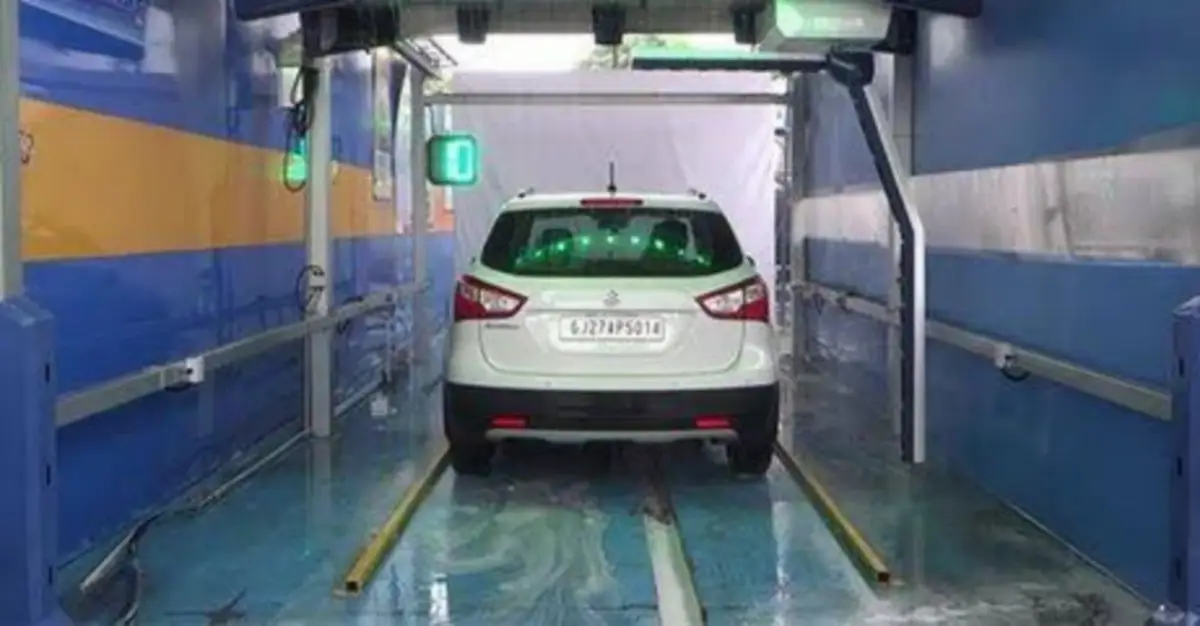
The ‘best’ type of automatic car wash depends on your customers as well as your specific needs and preferences. There are mainly 3 types of automatic car washes:
- In-Bay Automatics: This type includes a machine that rolls back and forth over a stationary car. It’s often found at gas stations and is typically cheaper to install and maintain but may have lower wash quality.
- Tunnel Systems: In this setup, cars are placed on a conveyor belt and pulled through a series of wash and rinse arches. While this type requires a larger initial investment, it can handle a higher volume of cars per hour, leading potentially to greater profitability.
- Self-Serve Automatics: These car washes provide a space for customers to wash their own vehicles using provided equipment. This option has lower labor costs but can also have lower throughput compared to tunnel systems.
Each type has its own pros and cons and may be more or less suitable depending on space, initial budget, potential customer base, and what your local market demands.
Table 6: Comparison of Automatic Car Wash Types
| Car Wash Type | Pros | Cons |
|---|---|---|
| In-Bay Automatics | Lower initial costs; Lower maintenance | Lower wash quality; Lower throughput |
| Tunnel Systems | High throughput; Higher wash quality | Higher initial investment; Higher maintenance |
| Self-Serve Automatics | Lower labor costs; Lower maintenance | Lower throughput; Customer effort required |
Ultimately, the best type of automatic car wash depends on the balance between the operator’s business objectives, budget considerations, and customer preferences in the local market.
Automated Car Wash Revenue
Table 7: Factors that Affect Car Wash Revenue
| Factors | Explanation |
|---|---|
| Location | The business location plays a key role in its success. In less ideal locations, visibility enhancement methods, like signage, may be required. |
| Weather/Season | The income fluctuation in car wash businesses can be linked to seasonal changes and weather patterns, including natural disasters. |
| Recurring Expenses | Running a car wash business comes with several overheads, such as employee salaries, supplies, utilities, loan repayments, insurance, and possibly license renewal fees. |
| Start-up Costs | Starting a car wash from scratch involves significant expenses, including land acquisition, construction, and equipment. |
| Marketing | Effective marketing strategies can help to increase the customer base, thereby augmenting the revenue. |
Let’s expand…
Location
The geographical placement of the car wash business is paramount (Figure 1). An underperforming location may necessitate additional signage for road visibility, attracting potential customers.
Weather and Seasonal Factors
Car wash businesses may experience fluctuating income due to weather conditions or natural disasters (Table 2). Profits may decrease during rainy seasons, hurricanes, or earthquakes, but could increase in the spring due to pollen or winter salt build-up. Therefore, owners need to have robust financial strategies to manage income during low-profit periods.
Table 8: Weather Impact on Car Wash Income
| Weather Condition | Impact on Revenue |
|---|---|
| Rainy Season | Decrease |
| Natural Disasters | Decrease |
| Spring (Pollen) | Increase |
| Winter (Salt) | Increase |
Recurring Expenses
Recurring expenses can significantly impact the profitability of a car wash.
The nature of your car wash significantly influences these expenses, including:
- Employee salaries, taxes, benefits (only for automatic and full-service car washes)
- Business-related taxes
- Supplies such as cleaning products, waxes, brushes, etc.
- Lease or mortgage payments
- Commercial loan repayment
- Utilities
- Equipment repairs/maintenance
- Commercial insurance
- Signage
- Complimentary food/beverage for customers (full-service only)
Startup Costs
Starting a car wash business can involve substantial costs for land acquisition, construction, and equipment purchase. These costs vary based on the location and type of car wash service you intend to offer.
Marketing
Effective marketing can enhance the number of customers, profits, and customer retention. Marketing strategies include the use of social media platforms (like TikTok, Twitter, and Instagram), website bookings, notices, flyers, attractive signs, and yellow page ads.
The financial concepts of profits and revenue are commonly confused. A business’s earnings in a given period don’t equate to pure profit. After deducting monthly expenses (including taxes), the remainder constitutes the net profit or monthly income. Therefore, budget for irregular expenses (like equipment repairs or replacements) to accurately calculate profits.
The takeaway: A comprehensive understanding of these factors can help maximize profits and ensure the successful running of a car wash business.
Read also: Business Tips: How To Register A Company in Simple Steps




